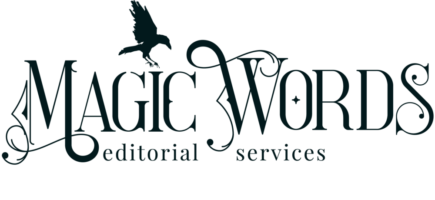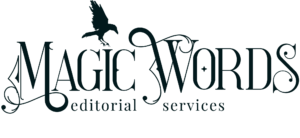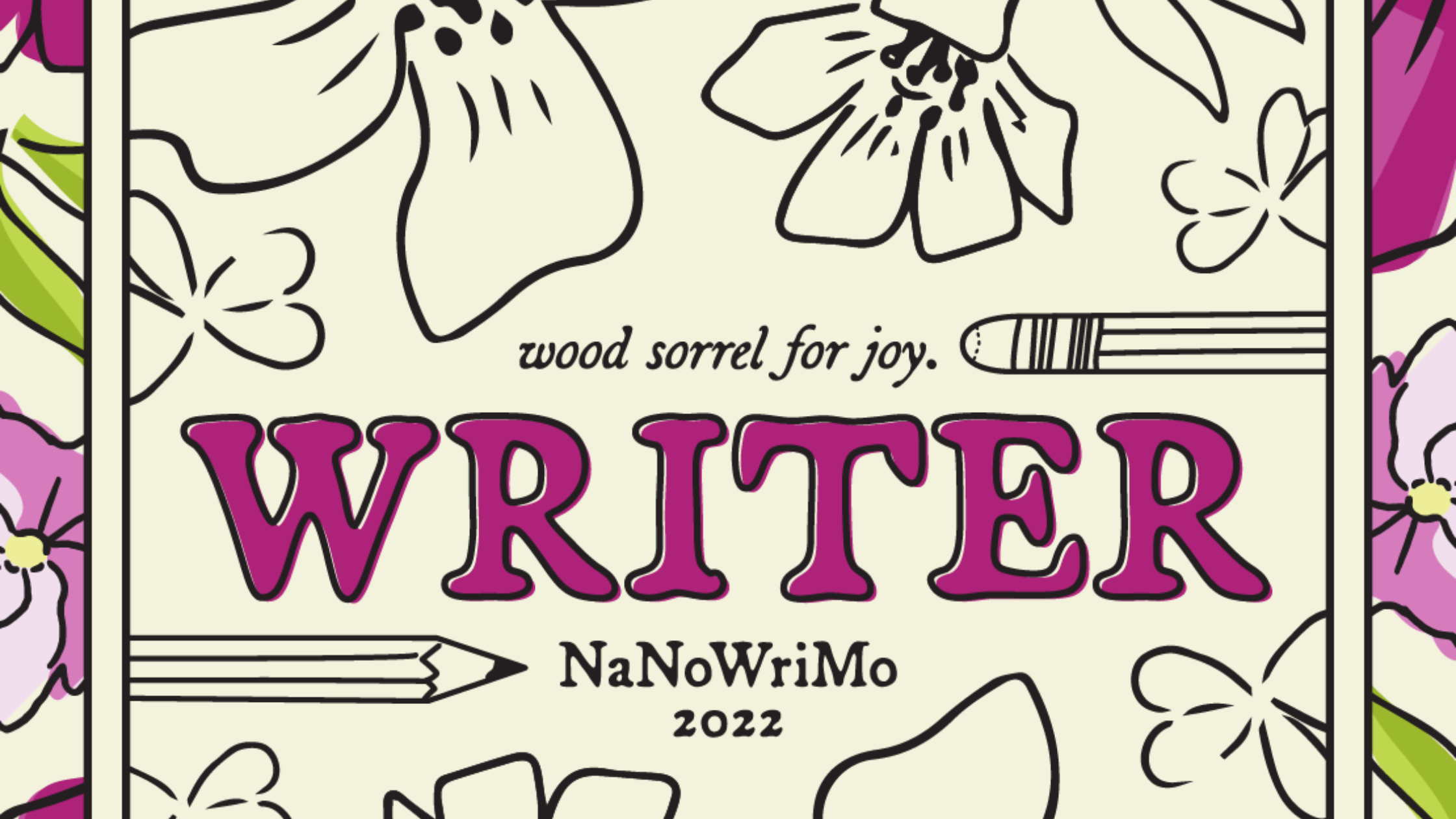
7 Tips for Winning NaNoWriMo (from a Veteran Winner)
It’s here! The big day us magic writers wait for all year: NaNoWriMo 2022 has begun! So, are you ready? Did you get everything done you wanted to accomplish during Preptober? Do you have your writing plan in place? Are you one of those truly dedicated souls who stayed up on October 31 and crashed out 2,000 words at the stroke of midnight? LOLOLOL
Er, me neither. (Who are those people?!) More than likely, you’re still trying to wrap your head around the concept of writing. every. day. For an entire! month! It seems daunting, doesn’t it? Don’t worry, my friend, you got this. As a three-year veteran of the whirlwind NaNo grind, I have several tips for winning NaNoWriMo that are field tested and winner approved.
Keep reading to learn more, and be sure to stay until the end to find out about some special goodies and gifts I’m preparing for your certain triumph.
Commit to the process
Have you heard the saying, “If you really want something, you’ll find a way. If you don’t, you’ll find an excuse”? Ouch. As much as it smarts, that truth definitely applies to winning NaNoWriMo. The most, most, most important tip I can offer is to just commit to doing whatever it takes to find success. Make up your mind that you’re going the distance, no matter what.
Here’s a story that perfectly illustrates this point. When I turned forty, I decided I was going to quit dithering and run my first half marathon (13.1 miles), something I’d always wanted to do. I was a hit-or-miss runner, at best, so this goal felt . . . well, impossible. How was I going to go from someone who could barely run a mile to running thirteen in one go? It would have been very easy to quit before I’d even begun by convincing myself this was completely impossible. But, I made up my mind that, come what may, even if I had to walk the entire time, I was going to commit myself to finishing the entire course.
Notice I didn’t say “commit to winning.” Nope. I decided all I had to do was commit to finishing. That’s it. I was going to show up at the start line no matter what. I was going to show up at the finish line no matter what. The middle would take care of itself, and I was committed to seeing that through too.
This is what I mean when I say “commit to the process.” I mean commit to the next thirty days of drafting an entire book. Just like everything writing-related, NaNoWriMo is a journey. Commit to taking that journey regardless of the outcome. Commit to the highs and lows (oh, my friend, there will be many of those). Commit to the frustrations of writer’s block and ecstatic joys of story breakthroughs. Commit to your characters, plot, world, themes.
Commit to finding that superhuman strength inside you to write one more day. Then one more after that. And then another, and so on.
Just make up your mind that you WILL do this, you WILL make NaNo happen. I know that sounds easy, but you’ll find that in practice this is actually the hardest, and most crucial, thing you can do to win NaNoWriMo.
Write most days
Of course, I didn’t just go into running my first half marathon completely out of shape and green. Part of committing to my process meant I had to commit to training my body to be able to go that distance. I found a great program that required me to run most days, and I gradually built up my distances and endurance.
Note: I ran most days, not every day. Rest days and time built into my schedule when I didn’t run saved me from injury. Most importantly, they saved me from quitting.
If my training had been completely inflexible, life would have inevitably crept in. Work, appointments, errands would have all taken precedence over daily, hours-long running sessions. So, it was important for me to have free days when I could both rest my body (and my mind!) and tend to the demands of my other commitments.
NaNoWriMo gives you a daily word count goal to get to 50,000: 1,667 words. That’s fine. What I’ve found works better, at least for me, is to build in at least one day a week that I don’t write and then another free day here or there for the unexpected to crop up. So, I shoot for more words on the other days to make up for it. Some days I hit that new word goal, some days I write WAY more. In the end, it balances, and that’s what counts.
Tell people you’re doing NaNoWriMo
When I committed to finishing my first half marathon, I made one important decision that helped me so much: I told not just my partner that I was going to do it, but everyone else I knew too. I knew that if others were aware of my goal, the thought of having to admit I didn’t reach it when they asked would be enough to keep me going. I didn’t want to feel the disappointment of telling them I hadn’t accomplished what I set out to do.
So now I do the same thing with NaNoWriMo—tell the important people in my life that I’m working toward this goal and give them permission to check in with my progress. Telling people helps cement a goal as real in your mind (and it helps with the commitment process!), and having those periodic check-ins from the people you love helps you stay accountable and on track. It also lets them know that you might not be as available for the next thirty days as you normally would be.
Connect with an accountability partner
Along with telling people about my running goal, one thing that I found to be invaluable to finishing a half marathon was connecting with my accountability partner, who just happened to be my life partner. Every time I’d come home from a training run, I’d go through the details of what happened, how I felt, what I needed to improve upon, what went well. I knew he expected that information, which kept me honest about not just completing the run but also helped me pay attention to anything that might be getting in the way of my goal.
And, just like race training, he’s also there at the end of every writing session, ready to read what we call my “dailies”—that is, my finished words for the day. He gives me his instant gut reaction about the way the story is evolving while I make notes for future revision (after NaNo is over, of course). By now, after three NaNos with the same book, he’s really invested in the story, and when I have a free day or miss writing for some reason, he’s so disappointed he doesn’t get to read the next installment!
I totally get that you might not want to share your rough cut with someone immediately after you write those words. How about sharing a summary of what happened? Not just in the story, but perhaps during the writing as well. Or, perhaps you just call or text your accountability partner with your word count for the day. The knowledge that they’re waiting to hear from you might just get you through those slumps when you don’t want to write.
Finish your session with a plan
Pretty early on in my run training, I figured out that my runs went better (and I was more apt to actually do them) when I finished up that session with a plan for the next run. Either a plan for what route I would take, or how I would vary my pace, or even what clothes I would wear the next time I ran would help me make incremental improvements in my stamina and comfort.
Ernest Hemingway did something similar when he wrote. He explained, “I always worked until I had something done, and I always stopped when I knew what was going to happen next. That way I could be sure of going on the next day.” I’ve kept that advice in mind during my previous NaNoWriMos and have always stopped writing not when I reached the end of a scene or chapter, but somewhat in the middle or perhaps in sight of the end. That way I always had an easy place to start the next day, and I could jump right in to writing without spending a lot of time ideating what happens next.
Having a plan for the next day’s writing session will help you capitalize on that day’s momentum and make you more likely to get back to writing after a break for, you know, eating, sleeping, or other human-ing activities.
Update progress every day
Pretty early on in my half marathon ambitions, I learned that several run trackers exist to help keep tabs on running practice and improvement. I invested in a fancy watch that told me how far I’d run, my pace, my heart rate, and a lot of other interesting data, and I compared each session’s data to my previous runs in a graph format. Seeing that line tick up and up and up as I increased my mileage and conditioning, and down and down and down as I improved my pace, was a very motivational visual cue that all the tedious hard work I was doing was paying off.
The NaNoWriMo website has a similar tracker and a lot of other data visualization tools to help you see how far you’ve come in your word count and how much you have left to go to get to 50,000 words. The best thing to do? Enter your word count every day at the end of your writing session, and spend some time digging into how far you’ve moved the tracking line. Some days it might seem like it hasn’t moved at all and you still have a loooong way to go. Some days you’ll see it jump into the stratosphere. It’s all good! Keep inputting that data to help you know how well you’re doing and what’s ahead for your count.
Set a reward
All the advice I read about running a half marathon told me that I needed something extra motivating to get me through the last few miles of the race, something I could hold in my mind when I’d reached the stage of utter exhaustion, the point where it would be completely easy to quit. My reward was a multicourse steak dinner, complete with dessert. I chose that because I’d been watching what I ate while I trained and it would symbolize an end to my good behavior AND it was easy to think about when my brain couldn’t form coherent thoughts in favor of just surviving those last three miles.
NaNoWriMo gives writers who win a bunch of really cool swag—discounts, freebies, goodies. But, think of a reward that’s personalized and meaningful to you, something really simple but special enough to make the stress and long hours of writing worth it at the end. Something you can hold in your mind while you pound out those final paragraphs. Those thoughts just might be the thing to take you over the finish line.
Now for the good stuff
Magic writers, speaking of rewards, I’m preparing some AMAZING deals on editing services for anyone who participates in NaNoWriMo this year. When I say AMAZING deals, I mean not just a little bit of savings here or a tiny bit there. I mean, serious savings. And for those of you who reach 50,000 words? How does FREE EDITING sound? Yes!
If that perks you right up and motivates you to get your words in, yay! That’s the point. If you want to know more about these participant and winner specials, click here.
Until then—Happy NaNoWriMo! May your words flow, my friends.
